From gene to the ecosystem – an innovative programme for the development of key competences in biological education for primary school students

 Project title
Project title
From gene to the ecosystem – an innovative programme for the development of key competences in biological education for primary school students
 Name of Beneficiary/Beneficiaries
Name of Beneficiary/Beneficiaries
University of Wrocław
 Name of programme
Name of programme
Operational Programme Knowledge Education Development
 Competition
Competition
University of Young Explorers
 Project value
Project value
PLN 410,865.00
 Funding value
Funding value
PLN 398,193.00
 Project delivery period
Project delivery period
from 01.07.2018 to 28.02.2021
Meet our team
Our team:
University of Wrocław Professor Józef Krawczyk, PhD – project manager
Anna Granat, MA – financial and administrative services
Agnieszka Kwiatkowska – financial and administrative services
Persons responsible for the implementation – authors of the educational programme and/or persons conducting the classes (alphabetically):
- Professor Gabriela Bugla-Płoskońska, PhD;
- Małgorzata Dambiec, PhD;
- Iwona Gottfried, PhD;
- Katarzyna Guz-Regner, PhD;
- Anna Kędziora, PhD;
- Agnieszka Klink, PhD
- University of Wrocław Professor Józef Krawczyk, PhD;
- University of Wrocław Professor Joanna Łubocka, PhD;
- University of Wrocław Professor Ewa Maciaszczyk-Dziubińska, PhD;
- Iwona Migdał, PhD;
- Eng. Ludmila Polechońska, PhD;
- Donata Wawrzycka, PhD
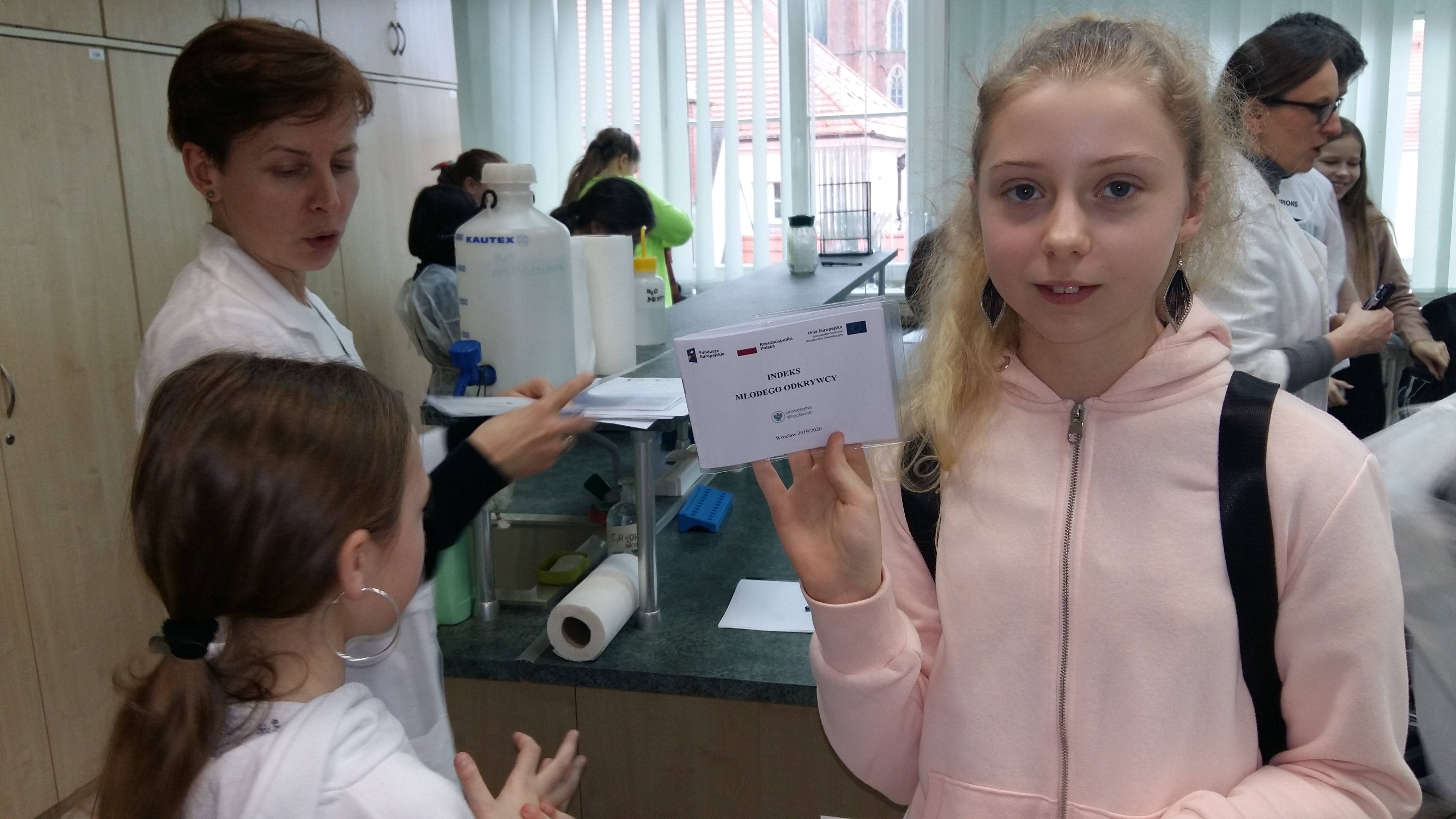
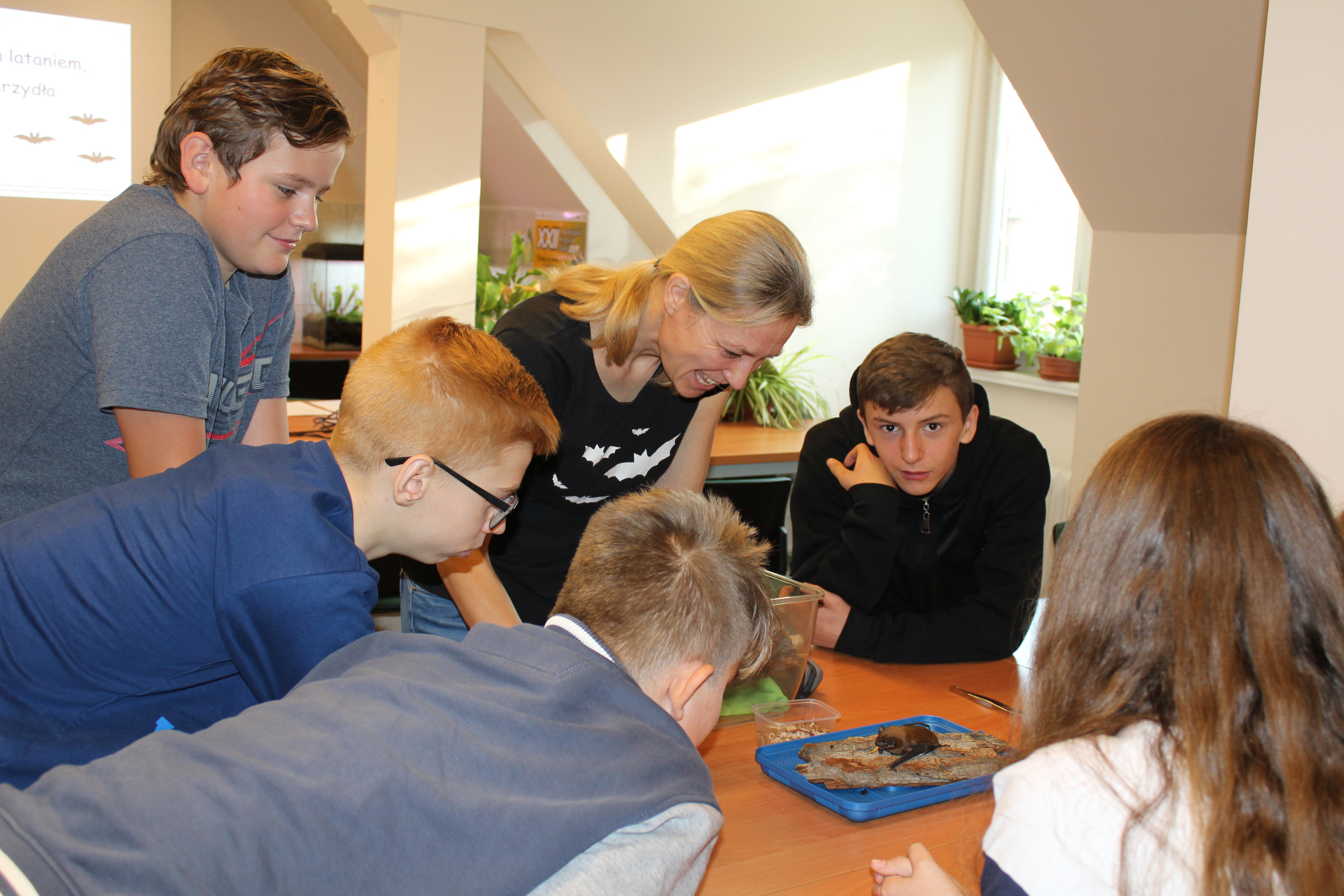
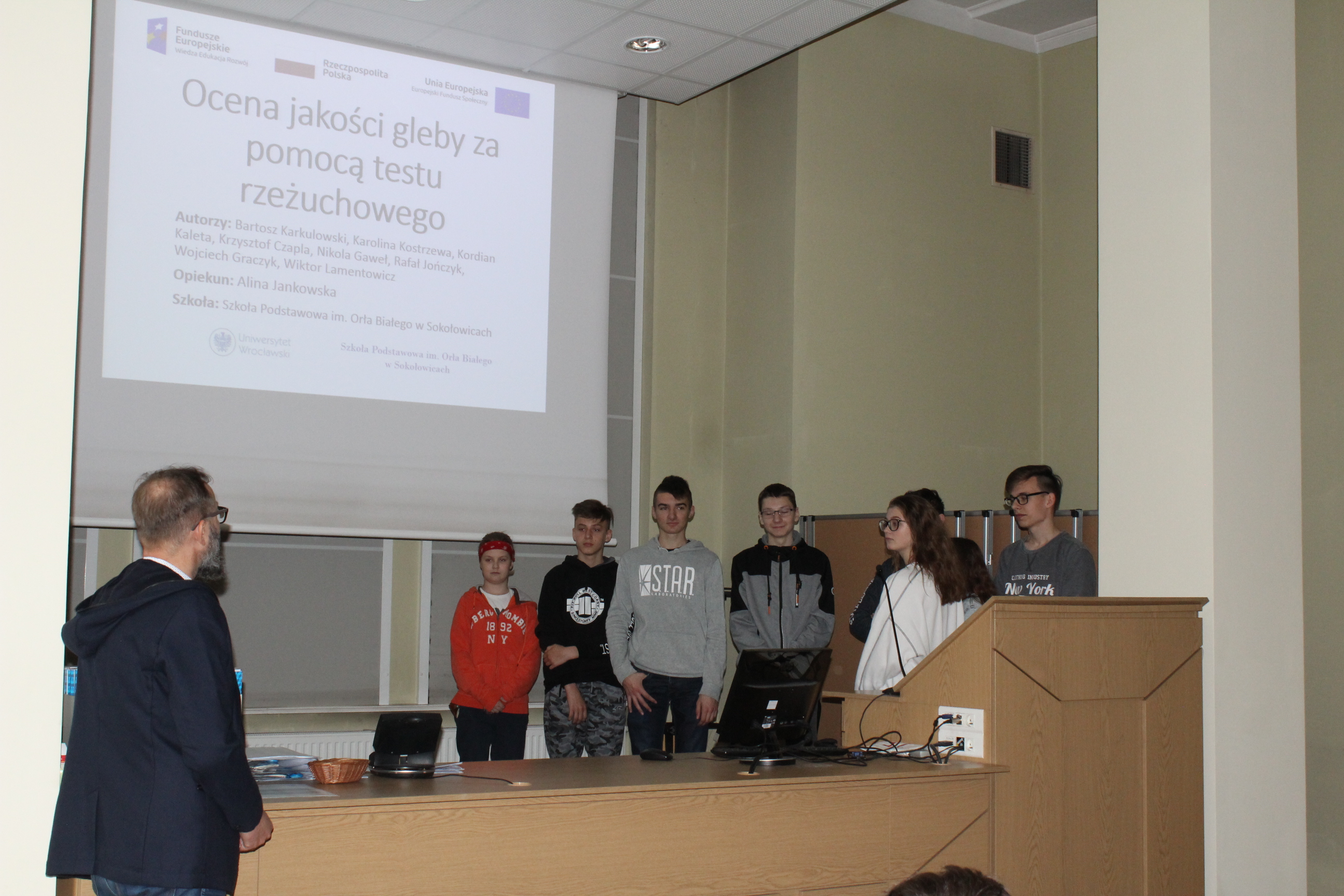
See the result of our work
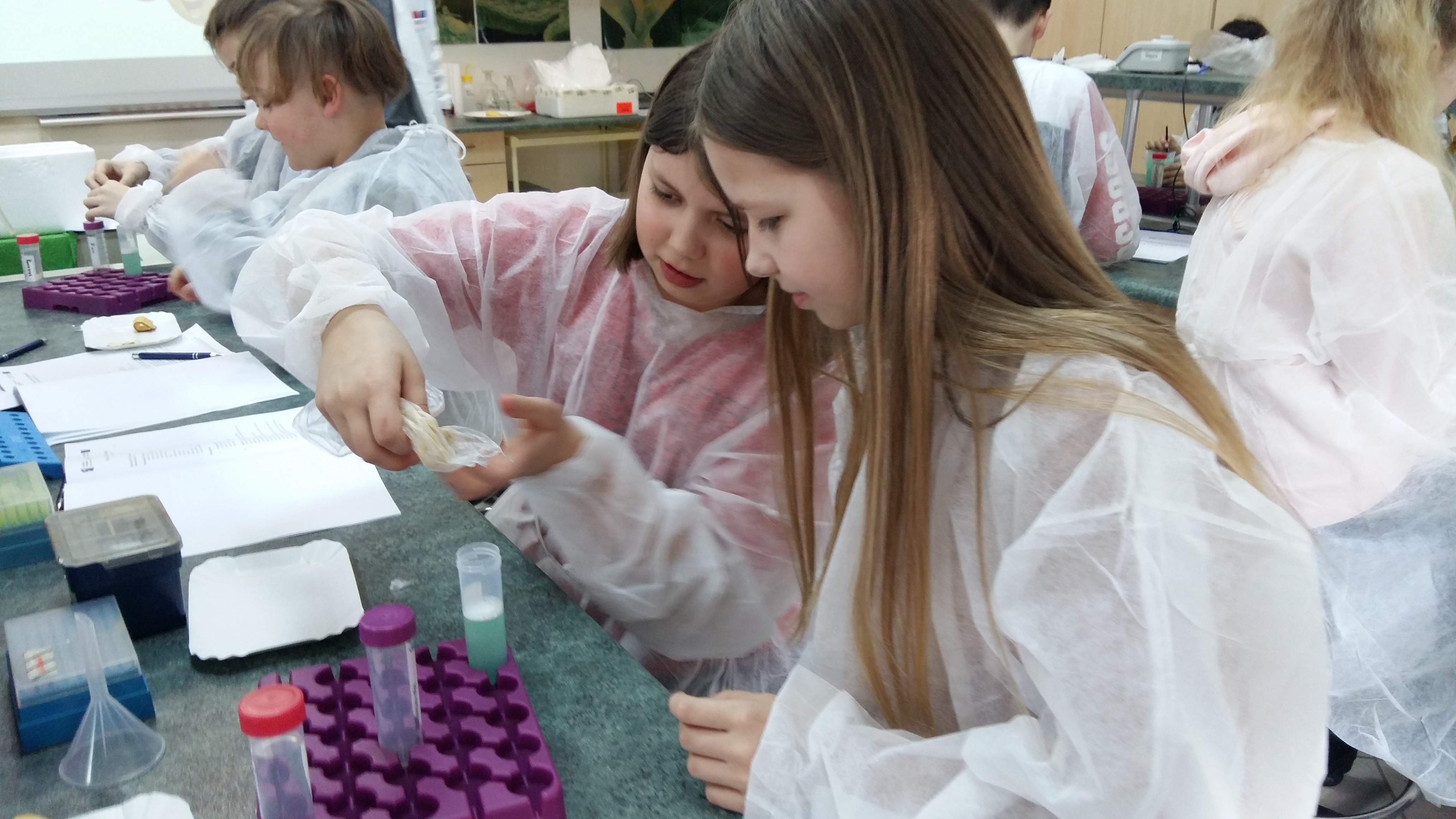
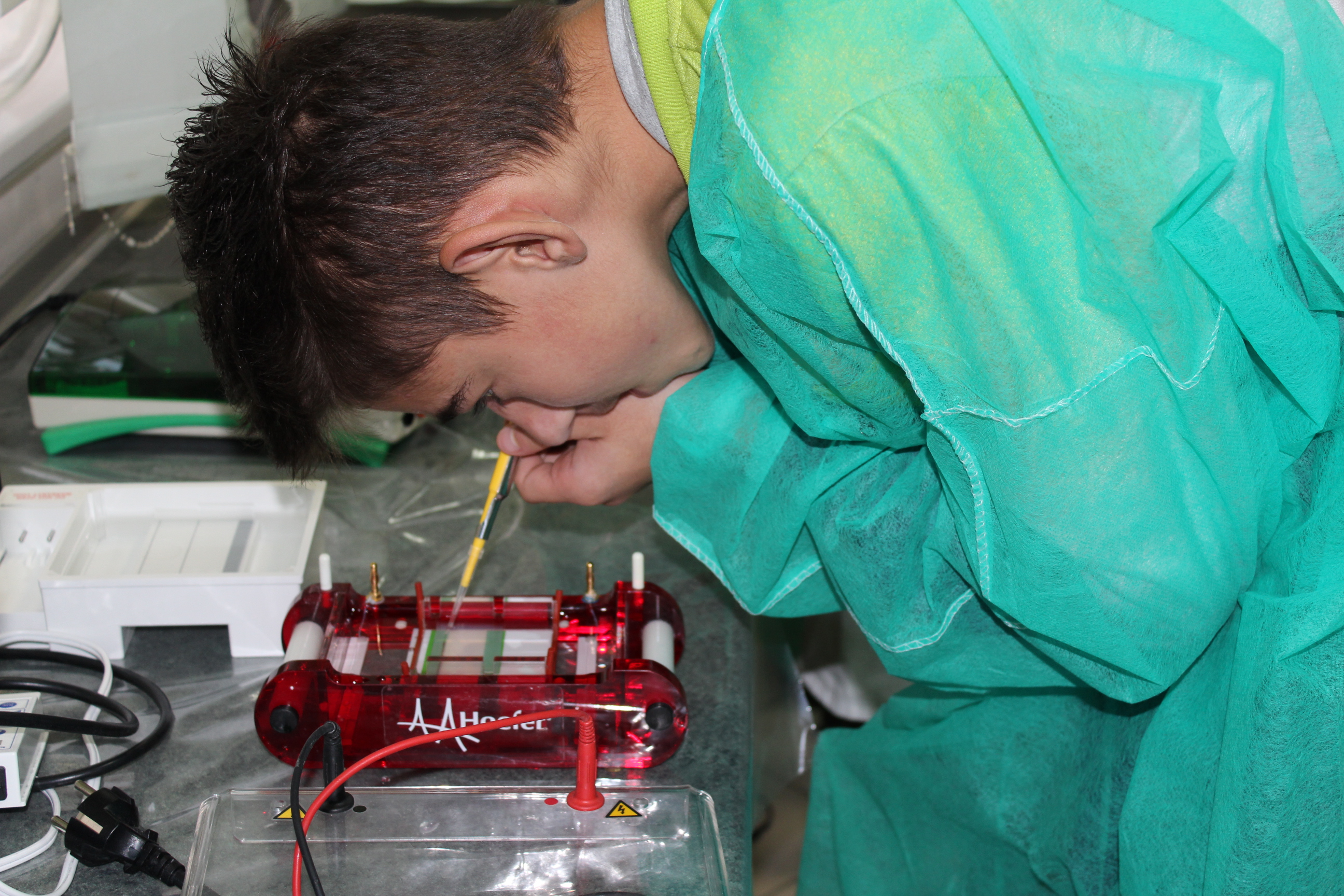
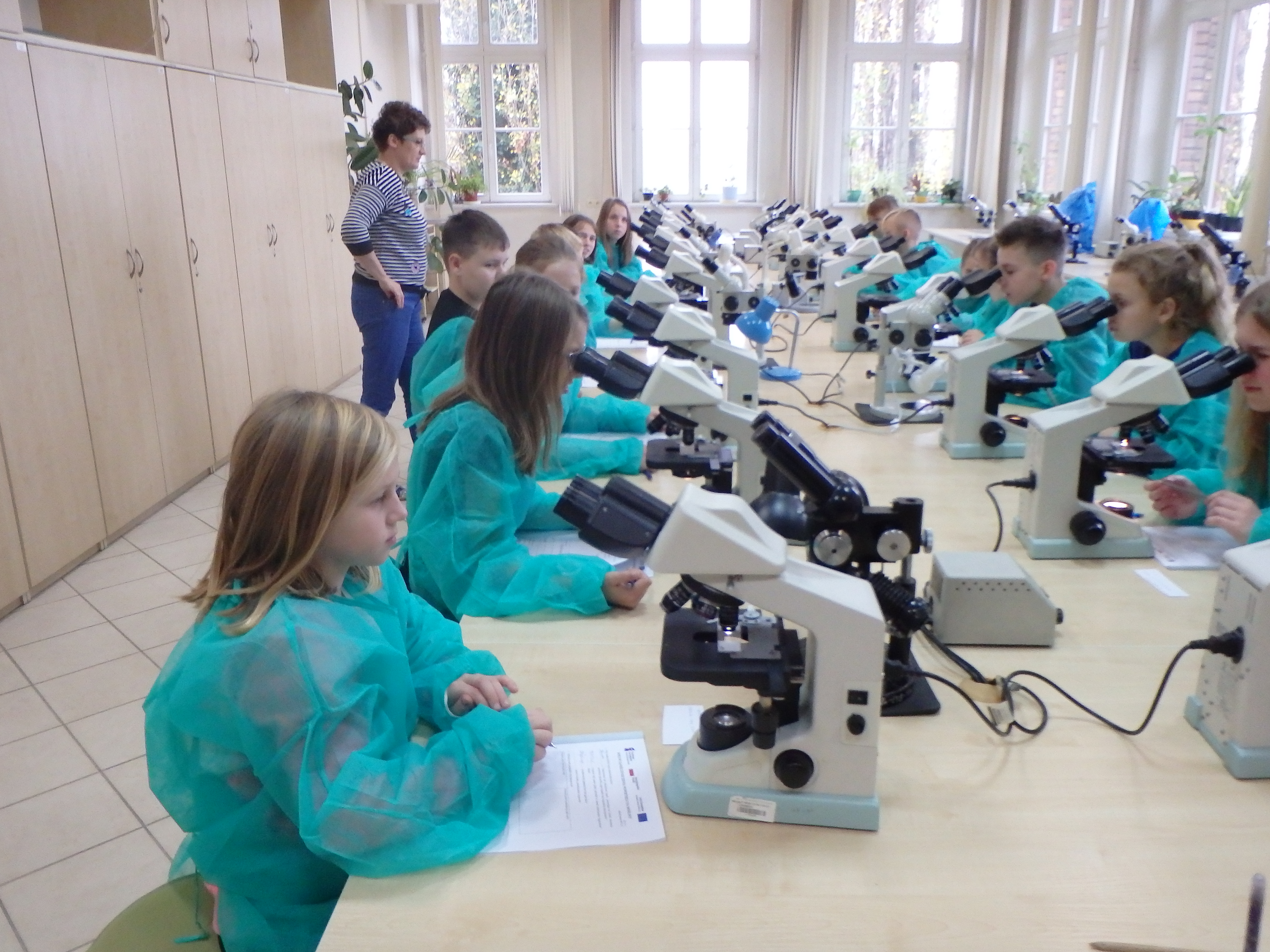

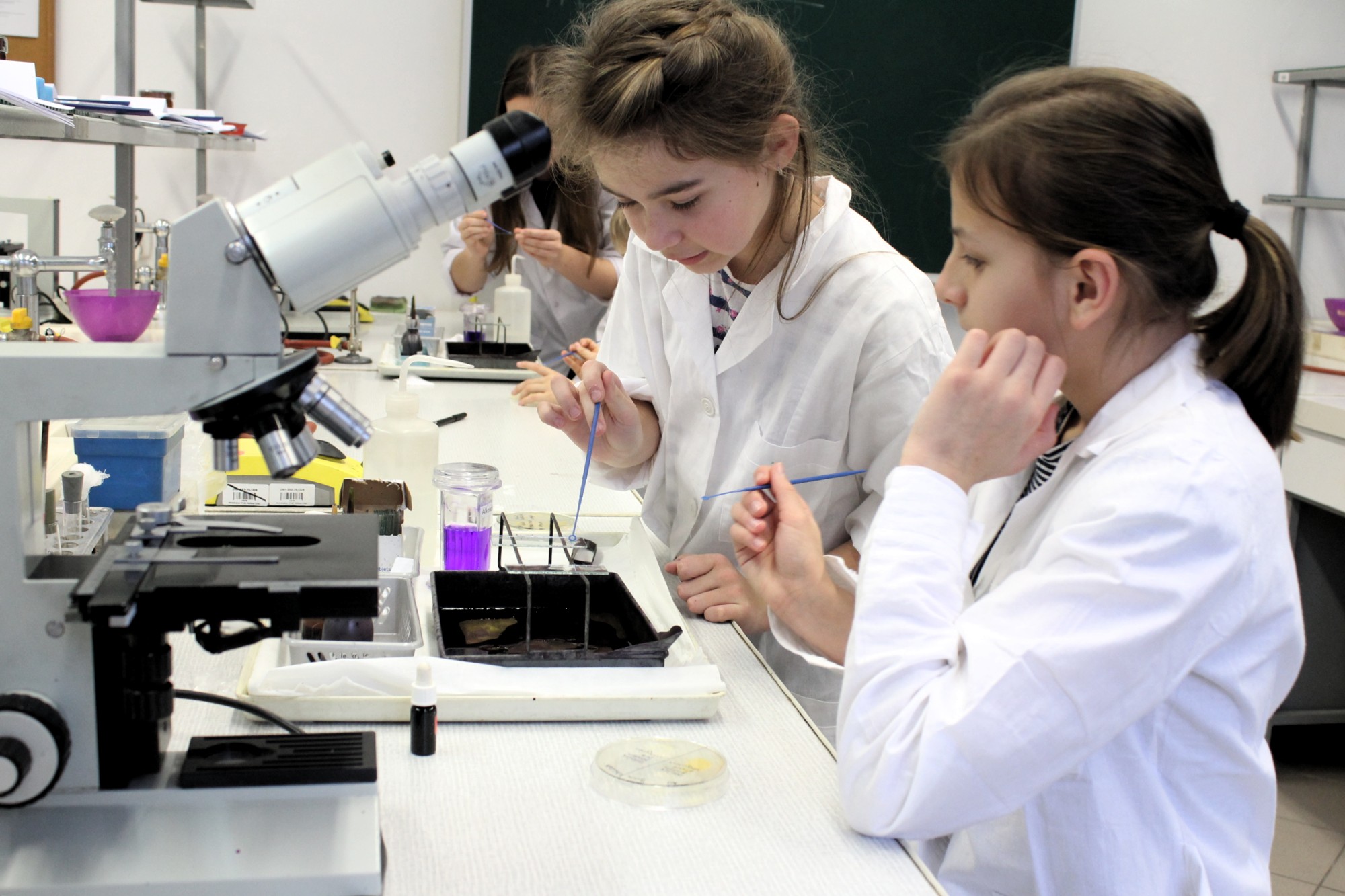
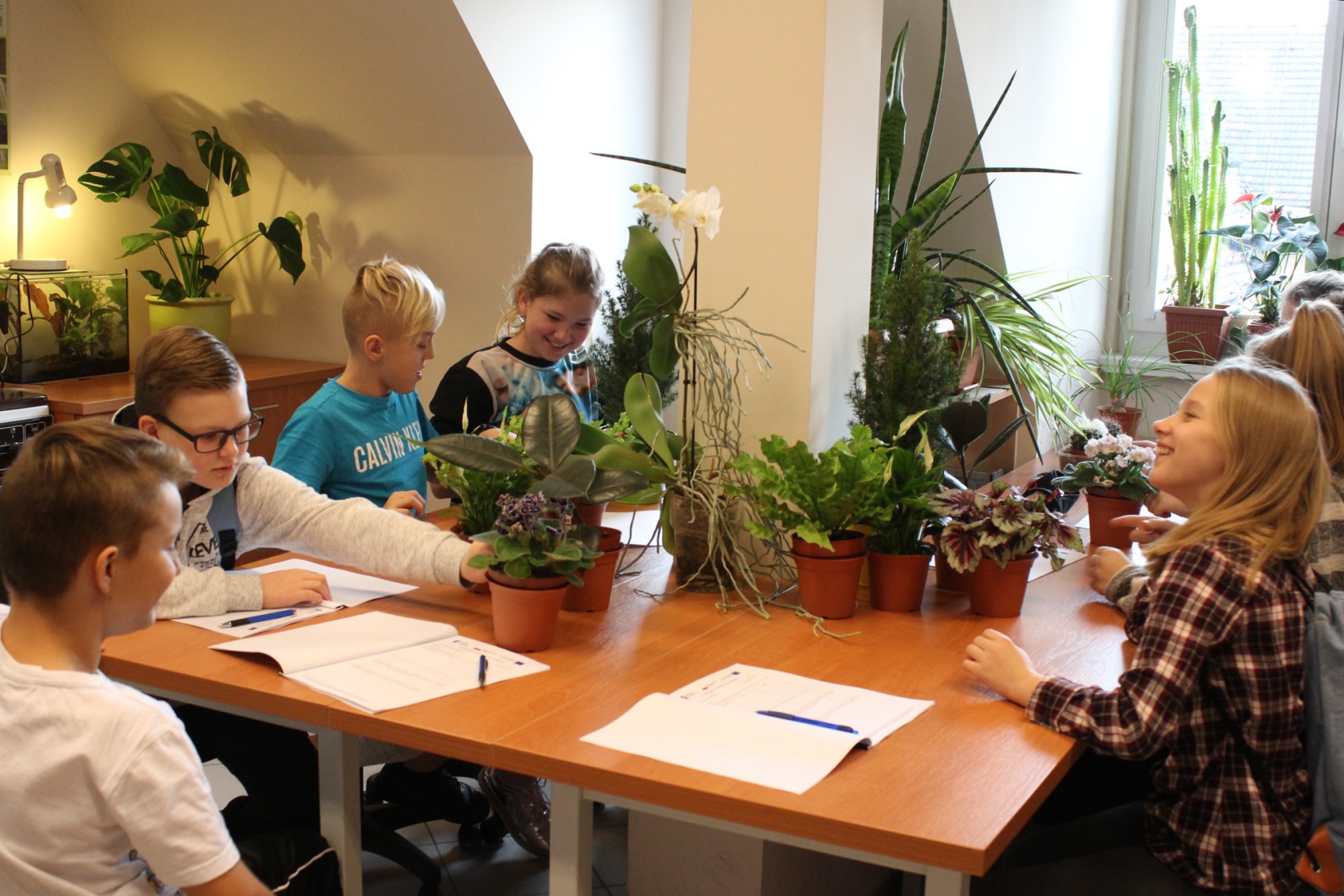
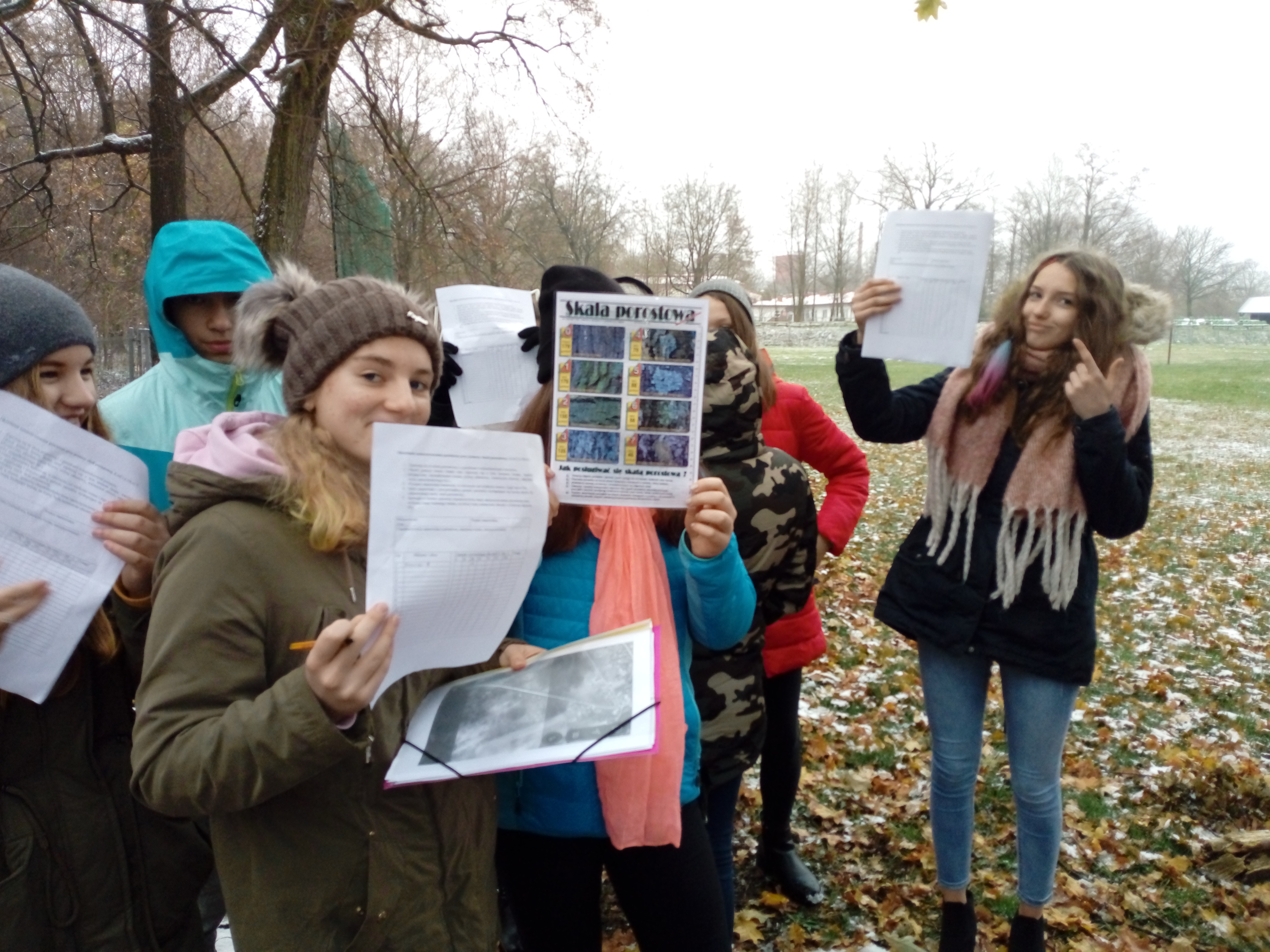
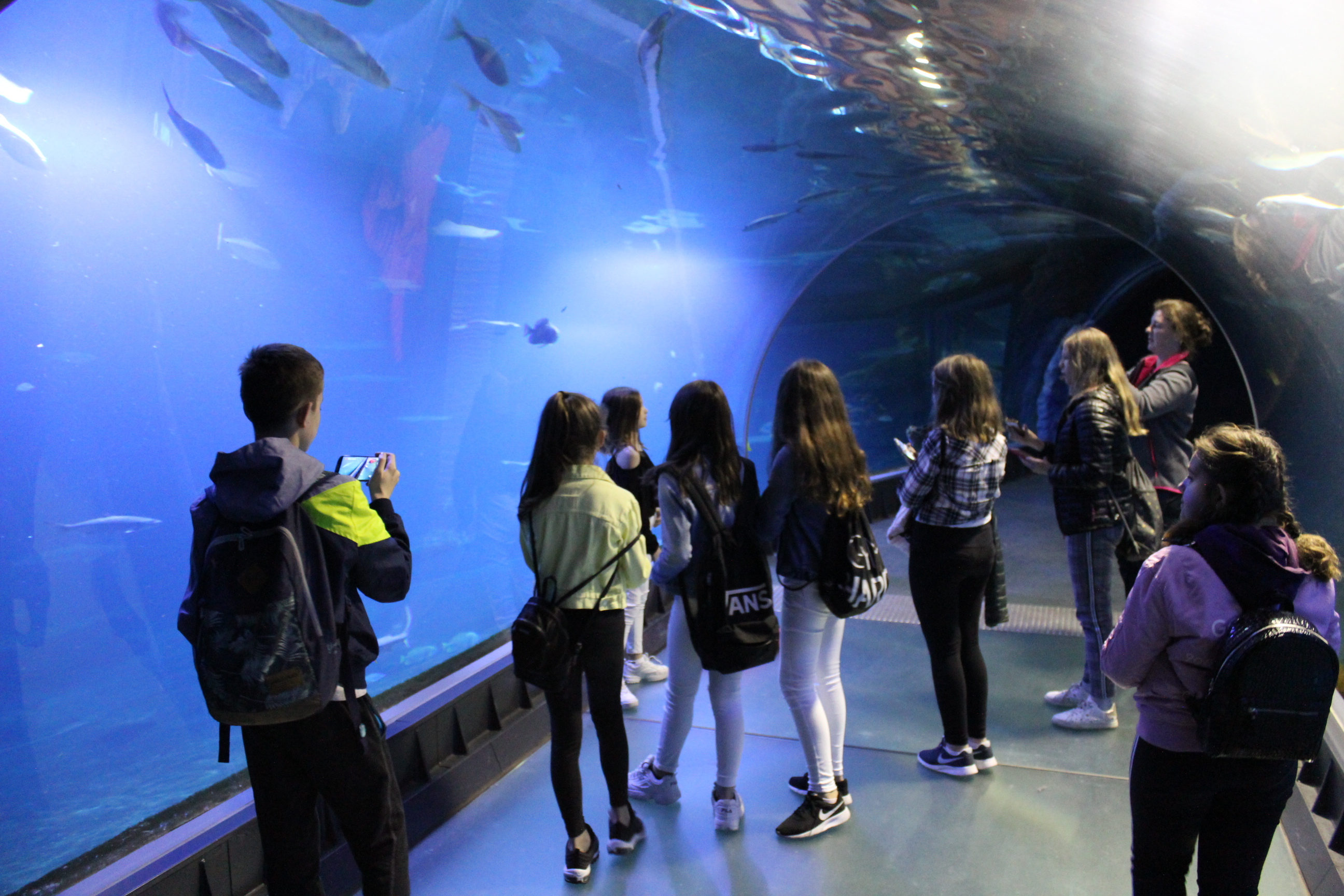
What problem does our project solve?
The programme is aimed at two age groups of primary school students (10-12 years and 13-15 years). The Faculty of Biological Sciences at the University of Wrocław has extensive experience in similar projects. This allowed us to diagnose the educational needs and expectations as well as the economic barriers associated with attending classes away from home. The recruitment did not and the general level of knowledge obtained at school is sufficient for participation. The activities are going to contribute to the development of the competences of children with average learning aptitude.
The main objective is to broaden and deepen the knowledge and skills in the various disciplines of biology, as well as to learn about the scientific method in both intimate and field settings. The course develops the ability to plan and conduct observations and experiments, to keep proper records of the data obtained, to reason and to make correct reasoning. The authors of the programme are keen to ensure that modern research methods and techniques are used in all classes, including the use of information technology. Equal attention is paid to the formation of key competences.
In each edition of the project, classes are conducted (a total of 35 teaching hours over five days; students arrive in the morning and leave after class) in four thematic sessions (genetics, microbiology, ecology and environmental protection). In addition, the pupils, under the supervision of their teachers, take classes in the Zoological Garden in Wrocław (teachers will be given lesson plans and instructions for the pupils) and also participate in selected activities led by the Garden's educators. A very important aspect of the programme is the student project carried out under the supervision of the school's teacher, which concerns the study of the state of the local environment using bioindicative methods. The teacher is provided with detailed scripts and instructions for carrying out activities and record-keeping, and is supported in terms of content and methods by university staff. The students, in groups of eight, conduct field research, plan and carry out experiments, process the results, investigate the causes of any environmental pollution found, prepare speeches and present them at the university in a concluding seminar.
During the lessons, mainly natural teaching aids are used. For example, the adaptations of organisms to their living environment are learnt by the pupils while observing plant cultures established for this purpose (representatives of different ecological groups: xerophytes, mesophytes, hygrophytes, hydrophytes and epiphytes, as well as many species of carnivorous plants) and animals (Madagascar and Brazilian cockroaches, mealworm, horned stick, Australian spook, various species of aquarium fish, Mexican axolotl, bearded agama, corrugated parakeets, small chinchilla, bats). The pupils worked with great commitment and incredible interest during these activities, and the most excitement was aroused by the bats, whose biology, ecology and means of protection they are learning about, and the carnivorous plants they are setting up to breed at their school (the pupils are provided with all the materials and plant specimens necessary to set up and run the breeding). Students also work in the laboratory:
- genetics, where, among other things, I use the latest research techniques in this area and modern equipment (DNA isolation, PCR, etc.),
- microbiology, where, among other things, they use various methods to isolate, culture and detect bacteria, make stained microscope slides of bacteria and view them under a microscope using immersion oil,
- environmental protection (analytical), where, among other things, they learn about and carry out various types of bioassays, use analytical techniques, e.g. to determine the phosphate content of water.
Who is going to benefit from the project results?
The project results benefited primarily its participants: 210 people (109% of the target indicator) from schools in the Olesnica district (Primary Schools in Grabowne Wielkie, Sokołowice, Smolna and Ligota Mała). In addition, a course for parents "Challenges of parenting" was organised, attended by 68 people (113% of the targeted indicator).
In addition, the implementation of the project contributed to a change in attitudes towards nature and encouraged nature-related activities in the local communities where the participants live. The seniors are spreading particularly positive information regarding the project throughout the district of Oleśnica, telling about the specific classes, the need to protect various organisms and the local environment, which also produces an additional effect with respect to the pro-environmental activities. This could include student projects on environmental assessment of the villages inhabited by these students, the implementation of which provided an opportunity for extensive community education. Students conducting research in the field generated interest, answered questions from local residents, etc. In addition to the seminar at the university, they also presented the results of their research at meetings with parents at schools, as well as at commune-wide celebrations at e.g. Earth Days, which were attended by students from schools throughout the commune, parents, local authorities and university staff. The teachers, seeing the results and the involvement of the children, declared their intention to repeat the pupils' projects in the following years, thus carrying out environmental monitoring. This school can become a leader among the borough's schools and, with the support of WNB University of Wrocław staff, promote the conduct of this type of research in other communities.
The published course programme is a good model for in-service teachers, who can use, be inspired by and modify the proposed lesson plans as needed.
The project also contributes to the development of personnel at the University of Wrocław. Academic teachers working as part of the project team improve and acquire competences related to the appropriate transfer of academic knowledge and its adaptation to the perceptive capabilities of young people, they also learn about and apply new methods of working with project participants, individualise teaching, and receive training, e.g. on how to work and cope in classes with students with high motor activity and methods for maintaining appropriate discipline in laboratory classes.
A tangible effect of the project for educators is also the possibility to collect data and conduct educational research, the results of which we present at scientific conferences and publish.
Which aspect of the project implementation have we found to be the most challenging?
A considerable challenge during the project was the proper planning and execution of activities with primary school pupils/students in the laboratories, during which they carried out experiments. We were concerned that the programme would be too intense and difficult for this age group, but the young people coped perfectly. We aimed to shape a variety of competences, and the methods chosen in this way allow for good learning outcomes. Pupils/students were active and engaged in the exercises, under the close supervision of the facilitators and assisted by the prepared worksheets and instructions. In the evaluation questionnaires, only a few people rated the programme as difficult.
The timing of the COVID-19 pandemic was also the biggest challenge, forcing us to extend the duration of the project, and to change the form of teaching from stationary to remote. It required a lot of work and further ideas to carry out the online activities planned in the project in an attractive and effective way. Thanks to the strong commitment and experience of the staff, it was possible to complete the project and achieve all the targeted indicators.
Our advice to other Applicants
At the Faculty of Biological Sciences at the University of Wrocław, we carry out a great many activities related to the education of pupils/students at different educational stages, but projects using NCRD funds offer many more opportunities to plan innovative, interesting classes that would not be possible without this financial support. Seeing the gratitude of the teachers, parents and children, for whom the activities at the University were an unforgettable adventure, as well as a great way to develop competence, cognitive curiosity and passion for science, we encourage other Applicants to implement such projects. Pupils/students have very quickly mastered the skills necessary for laboratory work, although they are unlikely to have such skills on a daily basis in schools. Some of them said they would become our students in the future because they loved biology. The participating schools have become our partners in various educational activities. We were surprised by the testimonies of the teachers/teachers regarding the change in attitudes of the young people participating in the project towards learning and studying not only biology, but also other subjects. There was no shortage of praise for the teaching staff, for their knowledge, competence, empathy, great patience and the amazing atmosphere they created during the classes. We look forward to the next competitions in which we will be applying.